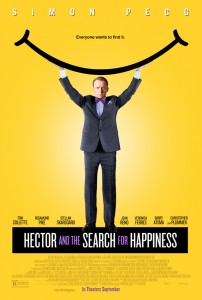The Book of Life
Posted on October 16, 2014 at 5:56 pm
A-| Lowest Recommended Age: | Kindergarten - 3rd Grade |
| MPAA Rating: | Rated PG for mild action, rude humor, some thematic elements and brief scary images |
| Profanity: | Some mild language |
| Alcohol/ Drugs: | None |
| Violence/ Scariness: | Themes of death and afterlife with some scary images of skeletons and desolation, peril including bull fights and snake bite, violence including sword fights and outlaws |
| Diversity Issues: | Diverse characters |
| Date Released to Theaters: | October 17, 2014 |
| Date Released to DVD: | January 26, 2015 |
| Amazon.com ASIN: | B00Q599952 |

Jorge Gutierrez (Nickelodeon’s “El Tigre”) is co-writer and director of a dazzling new animated film that all but explodes off the screen in a kaleidoscope of color and energy and a love of life and storytelling and colorful characters and fantastic adventures. It is filled with the richness of love and passion and life and death and music and bullfighting and courage and family. It is a refreshing new aesthetic, inspired by Mexican folklore, with many of the characters looking as though they were carved from wood — not by trained experts and not recently. It has great songs and stunning images, covers of songs by artists from Elvis to Mumford and Sons, with a sweet new duet from Us the Duo. Plus, there is a sensational and wonderfully varied voice cast that includes Ice Cube (superbly funny and warm-hearted), Cheech Marin, Placido Domingo, and Anjelah Johnson-Reyes (“Bon Qui Qui”).
And it is very funny and a lot of fun.
Even the opening logo for 20th Century Fox has been transformed, letting us know right from the start that we are in another world, or maybe three of them.
A museum guide tells a school group the story, which begins with a wager. The afterlife has two parts: The Land of the Remembered, ruled by La Muerte (Kate del Castillo), where the newly dead are joyfully reunited with their families, and all is celebration, and The Land of the Forgotten, ruled by Xibalba (Ron Perlman of “Sons of Anarchy”), a bleak landscape where souls who are no longer cherished by the living are isolated and afraid. The two rulers make a bet over which of two boys will win the heart of the girl they both love. The winner will get to rule the Land of the Remembered.
The children grow up. Xibalba’s candidate is Joaquin (Channing Tatum), who has become a brave soldier with a chest full of medals. One he never lets anyone see was given to him by Xibalba, who is not above cheating to win the bet. It gives whoever carries it courage and invulnerability.
La Muerte is rooting for Manolo (Diego Luna), who is studying to be a bullfighter like his father and all the other men in their family, but whose real passion is for music. Both are still in love with Maria (Zoe Saldana), just returned from her studies in Spain. Maria’s father favors Joaquin, who can protect the town from the evil, predatory bandit Chacal (Dan Navarro). But Maria’s heart is touched by the romantic Manolo, even after his first attempt to serenade her turns into a disaster (hint: never let your companeros persuade you that the songs of either Biz Markie or Rod Stewart are romantic). When it looks like he will lose the bet, Xibalba cheats again, sending a poisonous snake to bite Maria and Manolo.
Manolo is killed, and finds himself in the Land of the Remembered, where he is happy to see his mother and many other relatives. But to get back to Maria, he will need to cross through the Land of the Forgotten. He meets the candle-maker (a warm and very funny Ice Cube) and a monstrous bull composed of all the bulls Manolo’s family has ever killed, makes a daring wager of his own before he gets back just in time for the arrival of Chacal.
It may seem thickly plotted at times, but that is all part of the Carnivale sensibility. And the cavalcade of incidents and characters, both living and dead, is reassuring in its matter-of-fact approach, reminding us that it is all a part of the book of life, and that we can never lose what or who we truly love.
Parents should know that this film includes Day of the Dead-inspired images with skeletons and afterlife settings, characters in peril and some violence, sad deaths of parents and grandparent (reunited in afterlife), some scary monsters and villains, brief potty humor and some mild language
Family discussion: How can you tell when you follow your parents’ advice and when to do what feels right to you? What is the best way to make sure we remember the people who are no longer with us?
If you like this, try: “The Princess and the Cobbler” and “Rio” and the documentary “Walt and El Groupo,” about the real-life trip Walt Disney and his animators took to South America and how it transformed the look of Disney animation.



